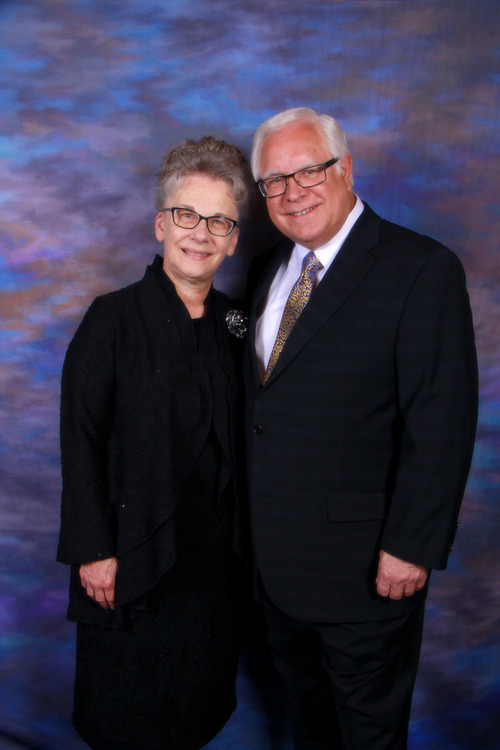 This past week, I concluded twenty-two years of service as the Ohio District Superintendent. Our UPCI manual states that an elected official can serve for eight years if he receives a simple majority of the vote, but after that he must get a two-thirds majority to be returned to office. That happened every election cycle from 2003 to 2015, an incredible gesture on the part of the district voting constituency for which I always felt greatly honored. Now, in 2017, we have elected a new leader who will, I’m positive, do a superb job in taking the district to an ever-brighter future.
This past week, I concluded twenty-two years of service as the Ohio District Superintendent. Our UPCI manual states that an elected official can serve for eight years if he receives a simple majority of the vote, but after that he must get a two-thirds majority to be returned to office. That happened every election cycle from 2003 to 2015, an incredible gesture on the part of the district voting constituency for which I always felt greatly honored. Now, in 2017, we have elected a new leader who will, I’m positive, do a superb job in taking the district to an ever-brighter future.
Some have asked me how I felt about the change. I suppose many people assume that an official who is not re-elected feels disappointed or even rejected. I want to allay all fears. I feel as upbeat and sure about my status as I have ever felt. I certainly bear no hurt, nor do I plan to go through a grueling analysis of how and why it all happened. Such an exercise is futile and counter-productive. A boy never resents losing his baby teeth or experiencing the change in his voice from tenor to bass. Why, then, should I resent going through the later stages of life? The dynamics of a new day bring with it new challenges, and so new minds, new methods and new tools become necessary to meet them.
Change is inevitable. I remind all those who despise change to beware. You do yourself a huge disservice by attaching your anchor to a fleeting stage of life. That stage will dissipate quicker than you could imagine. I know. I was once an evangelist. Then I became a student pastor. After that, I was an assistant pastor, then a district youth president, then a senior pastor. In 1995, I became a district superintendent. None of those positions, however, defined me as a person. Even when I was superintendent, that was not really who I was. I did the work of a district superintendent, but the position did not define me. The definition of my identity has always been a servant of Jesus Christ. Positions come and go, jobs and tasks change, and the roles you play in life differ according to your age and circumstances. All of them determine how you behave, but none of them determine your true identity.
Think about it. If your life consists of a specific role you play, then whenever that role is terminated, you may as well shrivel up and die. It’s over. You have no value, no worth, no future beyond that point. For me, that will not happen. My identity transcends any particular assignment or position. Moreover, if I live by the honor and accolades I receive from others, my life only lasts as long as those accolades keep coming. The Apostle Paul affirmed that his life’s purpose was only to please God. Everything else was irrelevant to that goal.
To close a chapter does not mean to close the book. A chapter in a book only serves to develop the plot and carry the story through to the next phase. Of course, something profound and earthshaking may have transpired in that chapter. Something critical to the story may have been revealed. A chapter, however, does not a book make! The plot marches on, inexorably, to the end. In fact, there may be a twist in the final pages of the book that makes everything else make sense. A relationship, an unexpected revelation, a beam of light cast upon a much earlier chapter may pull everything together.
I close this chapter. I enjoyed it. I am different, perhaps better in some ways. I have beautiful memories and rewarding relationships that developed as it happened. But, who is to say that the next chapter will be less important or less rewarding? I wait with bated breath on what the future holds. I love my district and the wonderful people here. Those things will never change. I thank each person who made a contribution to my life during that time.
As the poet, Robert Frost, wrote, “The woods are lovely, dark and deep. But I have promises to keep, And miles to go before I sleep, And miles to go before I sleep.”